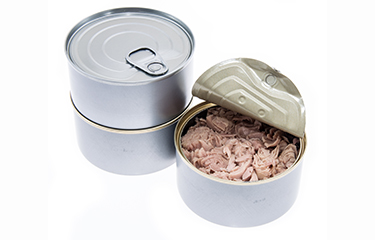A study by a food engineering student at the Universidad Nacional Autonoma de Mexico (UNAM) has discovered evidence of tuna cans produced in Mexico containing dolphin meat.
The study, performed by food engineering student Karla Vanessa Hernández Herbert, with advice from UNAM’s Secretary General José Francisco Montiel Sosa, examined 15 cans of tuna bought nearby the university. Of those 15 cans, three were found to contain traces of dolphin DNA, confirming the presence of dolphin meat.
"Although the ingestion of dolphin does not represent a health risk, the fraudulent addition of substances that are not authentic and the deception of the consumer are unacceptable," Hernández said in a press release from UNAM.
The DNA identification used the same technique utilized by the Fast Fish ID – the polymerase chain reaction (PCR). The reaction can be used to create many copies of specific strands of DNA, allowing for easier identification of individual species.
The study was intended to determine whether the canned tuna contained any species other than what was advertised on the can.
The news comes two years after a decade-long fight between the U.S. and Mexico over dolphin-safe labels was concluded by the World Trade Organization. Beginning on 24 October, 2008, the fight centered around Mexico disputing the U.S. rules on the labeling of tuna as dolphin-safe, on the grounds that the standards unfairly discriminated against Mexico. At issue was a strategy of tuna fishing in Mexico known as “fishing on dolphins,” where vessels will follow dolphins swimming with tuna.
Ultimately, the WTO sided with the U.S., upholding the dolphin-safe labeling requirements and allowing Mexican tuna to be excluded.
The news also comes in the wake of other ongoing seafood trade issues between Mexico and the U.S. In 2018, the U.S. National Marine Fisheries Service placed bans on imports of multiple types of fish caught in Mexico, related to potential harm to the highly endangered vaquita. A challenge on that ban by U.S. President Donald Trump’s administration was later rejected, and the seafood ban was expanded earlier this year.
Mexican publication Excelsior reported the study did not identify the brands of tuna tested.
“The objective of the work was not to denounce any brand as such, and of course even in 2018, with another administration, it was not the objective to point out at the national level that we were doing something wrong,” Montiel Sosa told the publication.
UNAM also stated that it has developed “numerous projects” that plan to study the quality of items like coffee, hamburger meat, and Norwegian cod.
Photo courtesy of HandmadePictures/Shutterstock







